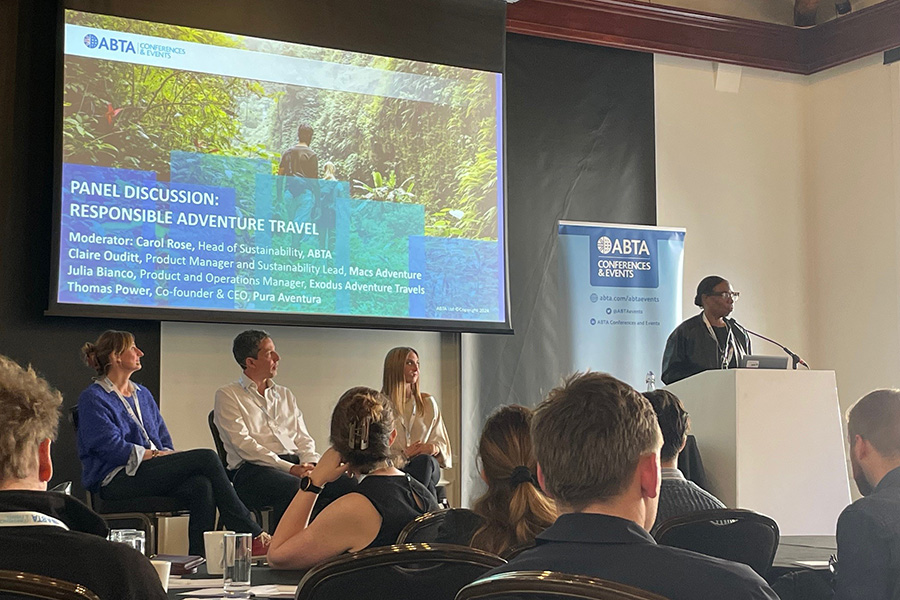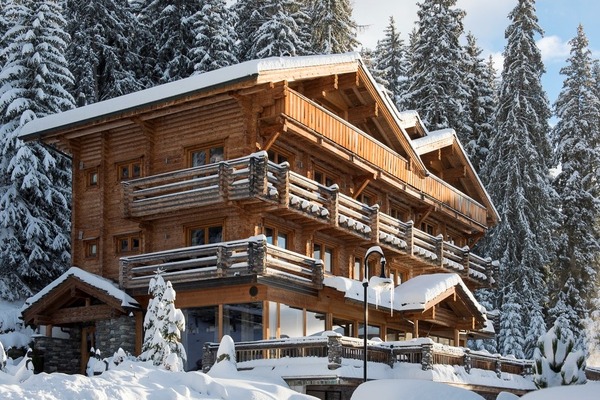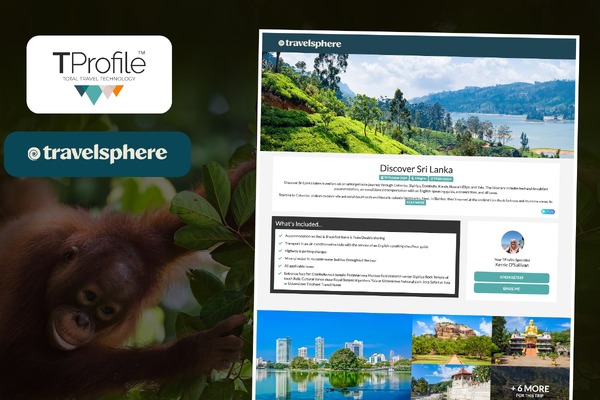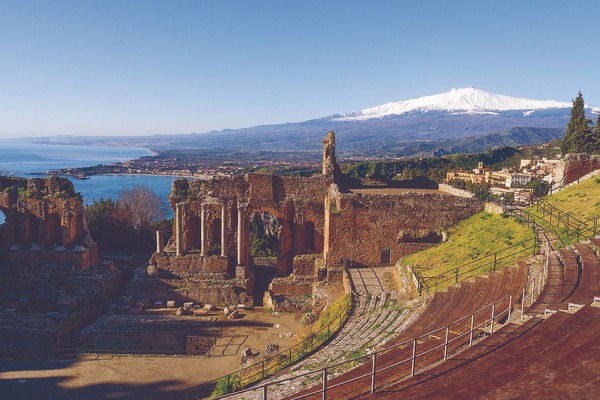Nine key takeaways from Abta's Adventure Travel Conference
A day-long conference yesterday addressed trends and challenges associated with one of travel’s fastest growing sectors, and TTG was there to glean the highlights
1. The sector is thriving
In her keynote speech, Intrepid’s managing director EMEA Zina Bencheikh said she had witnessed massive growth for adventure travel in the 14 years she has worked for the adventure tour operator: “It was niche, but it’s becoming more mainstream.”
This was echoed by Chris Roche, CEO and founder of online travel agent The Adventure People: “We’re on the cusp of adventure travel becoming mass market,” he said. “It’s growing faster than any other sector and by the end of this decade, we could be seeing more than a million customers in the UK.”
They offered different perspectives on where that growth is coming from. Bencheikh said 50-plus was the fastest growing segment of Intrepid’s customer base. “We currently have a 77-year-old female client trekking to Everest Base Camp,” she said.
However, Roche said The Adventure People’s growth was heavily skewed towards under-45s, who were comfortable booking their holidays online.
2. It’s hard to define adventure travel
Many of the speakers made the point that there’s a problem with the perception of adventure travel, with consumers assuming they needed to be super fit to do adventure travel. “But it’s not about being active,” Bencheikh said. “It’s about challenging yourself. It’s about collecting experiences, not things.”
Recalling the time when adventure travel meant visiting wild, inaccessible places, where there were language barriers and limited opportunities to exchange money, Roche said: “There’s no clear definition now. But it’s definitely about experiences.” He also said The Adventure People shied away from using the terminology of “tours” as that tended to infer coach tours, which “have the perception of being a bit dull,” he explained.
“Adventure can mean a homestay instead of a hotel or trying snorkelling for the first time,” offered Brian Young, managing director, G Adventures.
3. Adventure can be sustainable, but flights are not
We heard that adventure travel, in general, is the most sustainable type of holiday – but there’s more that can be done. Reducing group sizes; offering more popular destinations in low and shoulder seasons; opening up alternative destinations; encouraging customers to stay a day or two longer; using local guides; and travelling by train were all measures that could be adopted and promoted.
Julia Bianco, product and operations manager, explained how Exodus Adventure Travels had reduced group sizes visiting the Cinque Terre from 16 to 12, and eliminated more standard Venice tours. “We show the other side of Venice, exploring lesser-known neighbourhoods and meeting local artisans,” she explained.
However, while the industry can do everything in its power to offer sustainable travel, we cannot deny the immense carbon impact of flying, and that flights are integral to long-haul adventure travel: “You can’t swim to Patagonia,” said Thomas Power, co-founder and CEO, Pura Aventura.
4. Responsible travel needs to be experienced, not preached
Sustainability does not yet have a strong role to play in booking decisions, said Power. “You might get a 21-year-old saying they want a B Corp but consumer awareness drops off a cliff with the older demographic,” he said. “The time for relaying sustainable messages is not at the point of sale or departure. It really has most resonance and meaning when the customer is in the moment or at the event,” he said. “Sell a journey by train as the golden age of travel, not as the right thing to do.”
Claire Ouditt, product manager and sustainability lead, MACS Adventure supported this: “People don’t want to think about their holiday in that way. Sell the amazing experience first.”
5. If the unexpected happens, your clients will be looked after
When a 6.9 magnitude earthquake hit Morocco last September, Intrepid had 650 customers on the ground – Bencheikh said it was the busiest month of the year for travel to Morocco, which is the operator’s most popular destination. Yet thanks to Intrepid’s connections within the country, within a couple of hours all customers were accounted for, “even those in remote areas,” she said. “It gives customers peace of mind to know we have their backs.”
James Lawrence, co-founder and director, Peregrine Risk Management emphasised just how important it was for adventure tour operators to have up-to-date response protocols that reduce their customers’ exposure to risk. “Extreme weather is happening more and more. You need to prepare for those eventualities.” He also highlighted that this year the world will see the highest number political elections ever recorded in a single year, and that can set off a chain reaction of protests, unrest and police involvement, which then restricts movement. “Exercise and testing is the only way to build confidence that you will be able to handle incidents in a correct and effective manner,” he advised.
6. Loneliness is fuelling the solo travel boom
With an epidemic of loneliness affecting as many as a quarter of the world’s population, group tours give people who live on their own a chance to connect with real people.
Richard Adams, head of marketing at Jules Verne, devoted his presentation to the rise of solo travel, which makes up 40% of the operator’s customer base. “Your brand should service solo travellers in the same way you do all your customers,” he advised. “Don’t try to second guess why they are travelling solo. It could be through circumstance, or by choice.”
While Zina Bencheikh had earlier talked about the popularity of Intrepid’s female-only tours, Adams said Jules Verne’s research revealed its customers did not want same-sex groups.” They’re looking for more diversity in the make-up of the group,” he said. “They find same-sex groups too homogenous.”
7. To raise prices or not to raise prices, that is the question
Roche said affordability was a key factor currently because people were concerned about price and that the right price was driving demand. More competition in the marketplace could also help drive prices down. However, Pura Aventura’s Thomas argued that prices could not drop if operators wanted to preserve the integrity of the experience.
8. With adventure comes innovation
A rise in DINKS (double-income, no kids) and TEDs (teenage experience demand) will stimulate further growth and innovation, said Roche, while it will become more common for larger families to request private tours with their own guide.
He also suggested that operators will start to make more of their accommodation as a differentiator. “As more players enter the market, operators will need to increase investment in content and distribution to get those messages out to consumers.”
Young shared some of G Adventures’ innovations, from its new Geluxe style of premium touring to its custom-built Landos. He also emphasised the role bigger operators can play in opening up new destinations: “We can’t keep sending thousands of customers to Machu Picchu. Let’s look at Choquequirao instead.”
9. Experiences change lives
Ultimately, agents who embrace selling adventure travel will be giving their customers the gift of experiences that will stay with them forever. Several speakers drew on their own travel experiences. Martin Johnson, co-founder and chair of the Expedition Cruise Network, played a video taken of a pod of orcas swimming at sunrise in Antarctica, a peaceful moment he was fortunate enough to witness with his wife, while Young said the view that met him of Colombia’s Lost City at the end of a multi-day trek “will stay with me forever”. And Intrepid’s head of partnerships Joanna Reeve recalled how Dame Irene Hays was so moved by her experiences in Morocco with Intrepid that she now sponsors three girls supported by Education For All, Intrepid’ charity partner in the destination.
Sign up for weekday travel news and analysis straight to your inbox

Katherine Masters
Supplier Directory
Find contacts for 260+ travel suppliers. Type name, company or destination.













